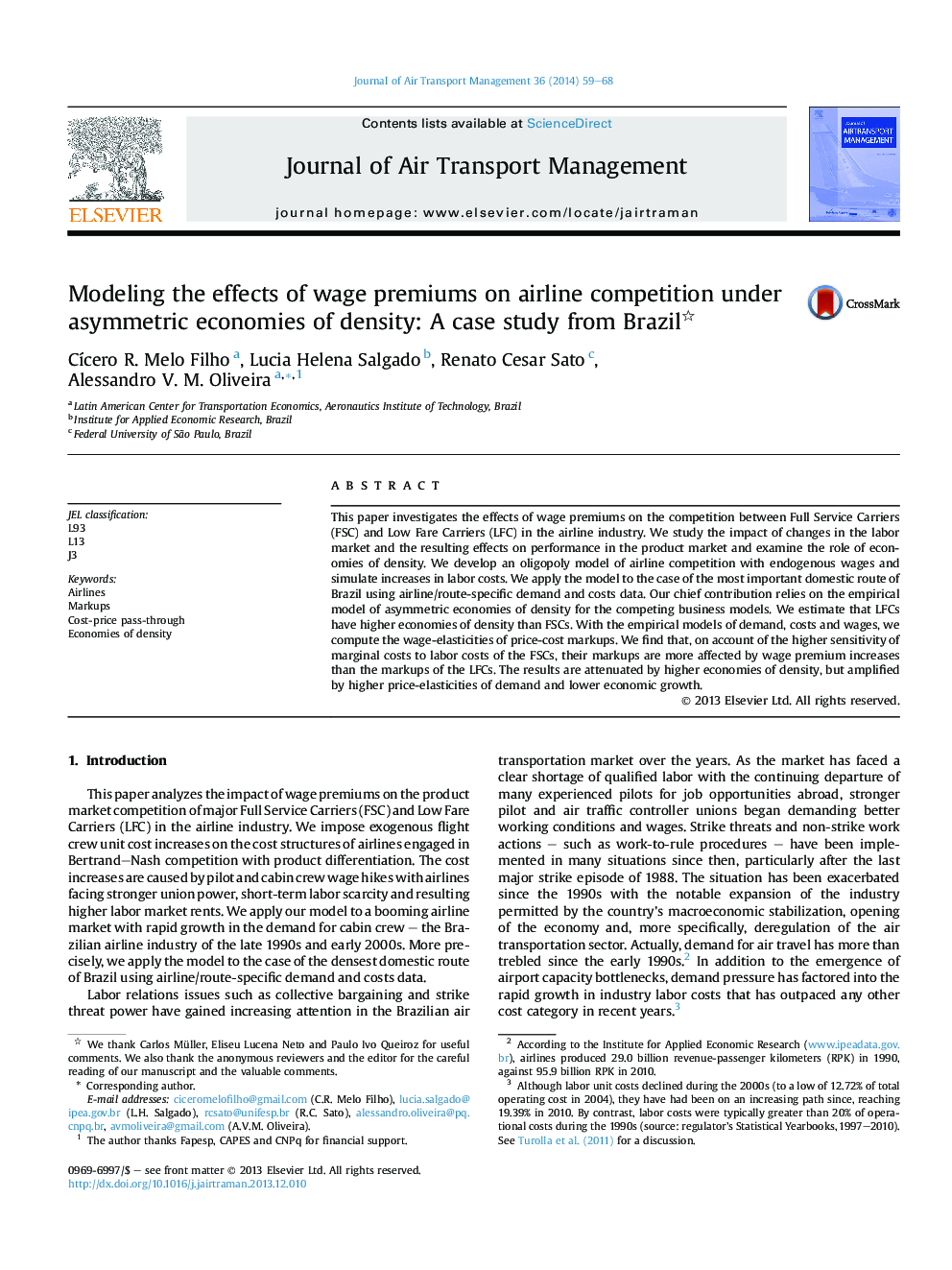| Article ID | Journal | Published Year | Pages | File Type |
|---|---|---|---|---|
| 7435895 | Journal of Air Transport Management | 2014 | 10 Pages |
Abstract
This paper investigates the effects of wage premiums on the competition between Full Service Carriers (FSC) and Low Fare Carriers (LFC) in the airline industry. We study the impact of changes in the labor market and the resulting effects on performance in the product market and examine the role of economies of density. We develop an oligopoly model of airline competition with endogenous wages and simulate increases in labor costs. We apply the model to the case of the most important domestic route of Brazil using airline/route-specific demand and costs data. Our chief contribution relies on the empirical model of asymmetric economies of density for the competing business models. We estimate that LFCs have higher economies of density than FSCs. With the empirical models of demand, costs and wages, we compute the wage-elasticities of price-cost markups. We find that, on account of the higher sensitivity of marginal costs to labor costs of the FSCs, their markups are more affected by wage premium increases than the markups of the LFCs. The results are attenuated by higher economies of density, but amplified by higher price-elasticities of demand and lower economic growth.
Related Topics
Social Sciences and Humanities
Business, Management and Accounting
Strategy and Management
Authors
CÃcero R. Melo Filho, Lucia Helena Salgado, Renato Cesar Sato, Alessandro V.M. Oliveira,
